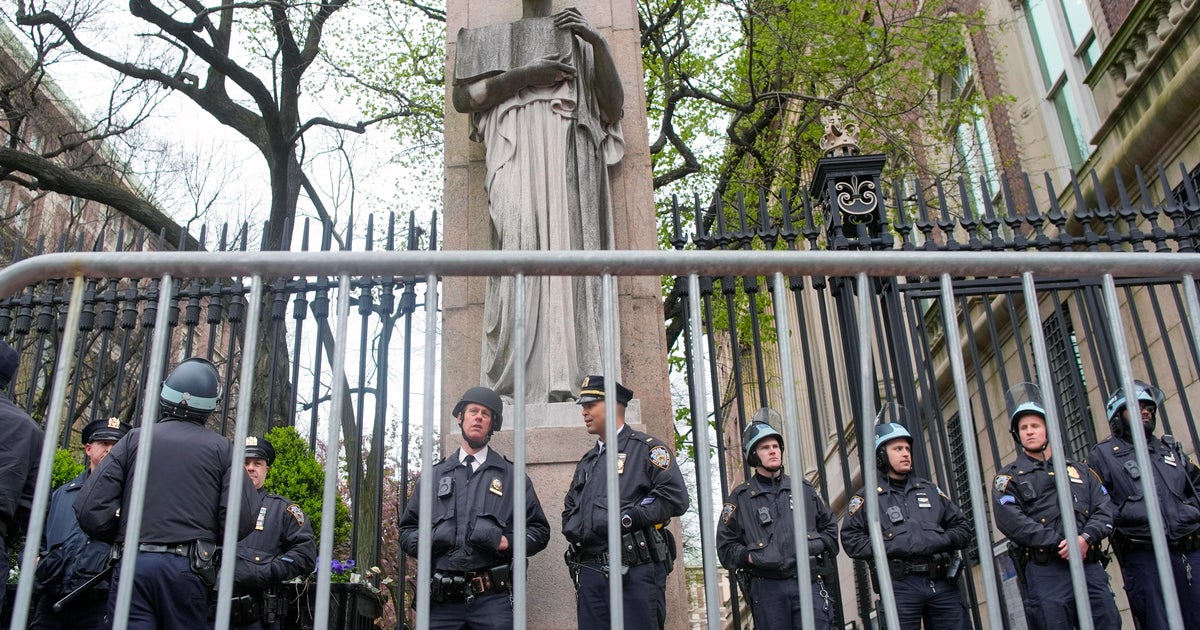Health Department: Confirmed Flu Cases In NYC Up 77%
NEW YORK (CBSNewYork) -- The winter season isn't the only thing in full swing. The flu season is also in high gear here in the Big Apple.
Doctors are reporting an early rise in cases ahead of the peak.
Health experts told CBSN New York's John Dias on Thursday each flu season is different than prior ones, and they're unpredictable. But one thing is certain -- everyone who is able is being advised to get a flu shot.
The Department of Health said usually the flu season starts in October and lasts through May, often peaking in February. However, the department is reporting an early rise this year. State health officials said the total number of confirmed cases this season in New York is 8,253 with one official saying there are "more cases at this point in time than the past three flu seasons."
The number of new confirmed flu cases in New York just for the week ending Dec. 14 was 3,264, which is a 77% increase. Of those 3,264 cases, 2,028 were in New York City, 319 were on Long Island and 119 were in Westchester.
Dr. Dyan Hes, medical director at Gramercy Pediatrics, said the number of people who have the flu is likely even higher than the number of confirmed cases, since not everyone who comes in with symptoms is tested.
Many people who do come down with the flu, however, are turning to hospitals for treatment.
"Sometimes people are feeling so unwell that they really decide that the emergency room is the right place for them to go," said Dr. Erick Eiting, vice president of operation at Mount Sinai Downtown. "About this time of year, we would see a big uptick in influenza A, but what we're seeing is a lot more of influenza B and we are still not sure what that means at this point."
"If you're fever's not coming down with typical measures like Acetaminophen or Ibuprofen, if you can't keep fluids down, if you feel like you're having difficult breathing, these are times when you need to come to the hospital," Dr. Robert Glatter, of Lenox Hill Hospital, said.
Ernesto Romero, of Jamaica, Queens, was hospitalized after coming down with the flu.
"Like a train hit me. I felt pretty sick, pretty bad," he said. "I couldn't walk. I couldn't get out of bed."
"You don't want to get up. You don't want to move. You just want to sleep all day," said Justin Diaz, of Washington Heights.
"I felt like I wanted to give up on everything," one woman said. "You just kind of worry that it is never going to end."
MORE: Doctors: Holiday Season Is Ideal For Spreading The Flu
Hes said she thinks the spike is happening because of the holiday season.
"I think kids are at concerts. We are at daycare, parties, family parties, tons of travel," Hes said. "We have been so busy because every single patient wants their child to get checked before they fly."
Getting a flu vaccine is the best way for people to protect themselves during the flu season, health officials said, but Hes says you must still monitor your children even if you vaccinate them.
"They have been vaccinated for the flu, but they get the flu, so they have a less severe version. So they are able to still run around and able to go to parties, but they may actually have the flu," she said.
Having good hand hygiene is also one of the best things to do to stay clear of the flu.
Doctors say symptoms of the flu include fever, cough, body aches and fatigue.
Glatter warns the virus can lead to complications like pneumonia, which is making headlines this week after the death of rising ESPN star Edward Aschoff.
Aschoff was open about being sick on social media, writing, "Anyone ever had multifocal pneumonia in their early 30s?" He said he never got sick and had a very healthy immune system. He died on his 34th birthday.
On Thursday, Aschoff's fiancee posted on Twitter thanking everyone for their sympathies and prayers, saying Aschoff "loved people with his entire being." He died in the ICU.
"Healthy people do develop pneumonia," Glatter told CBS2's Jessica Layton. "It is rare. It doesn't happen commonly, especially if you have a normally active immune system."
This time of year, it's tempting to be out and about, going to every event and party, but if you don't feel well, it's best to stay home.
And don't be stubborn -- go to the doctor or the hospital when it's time.



